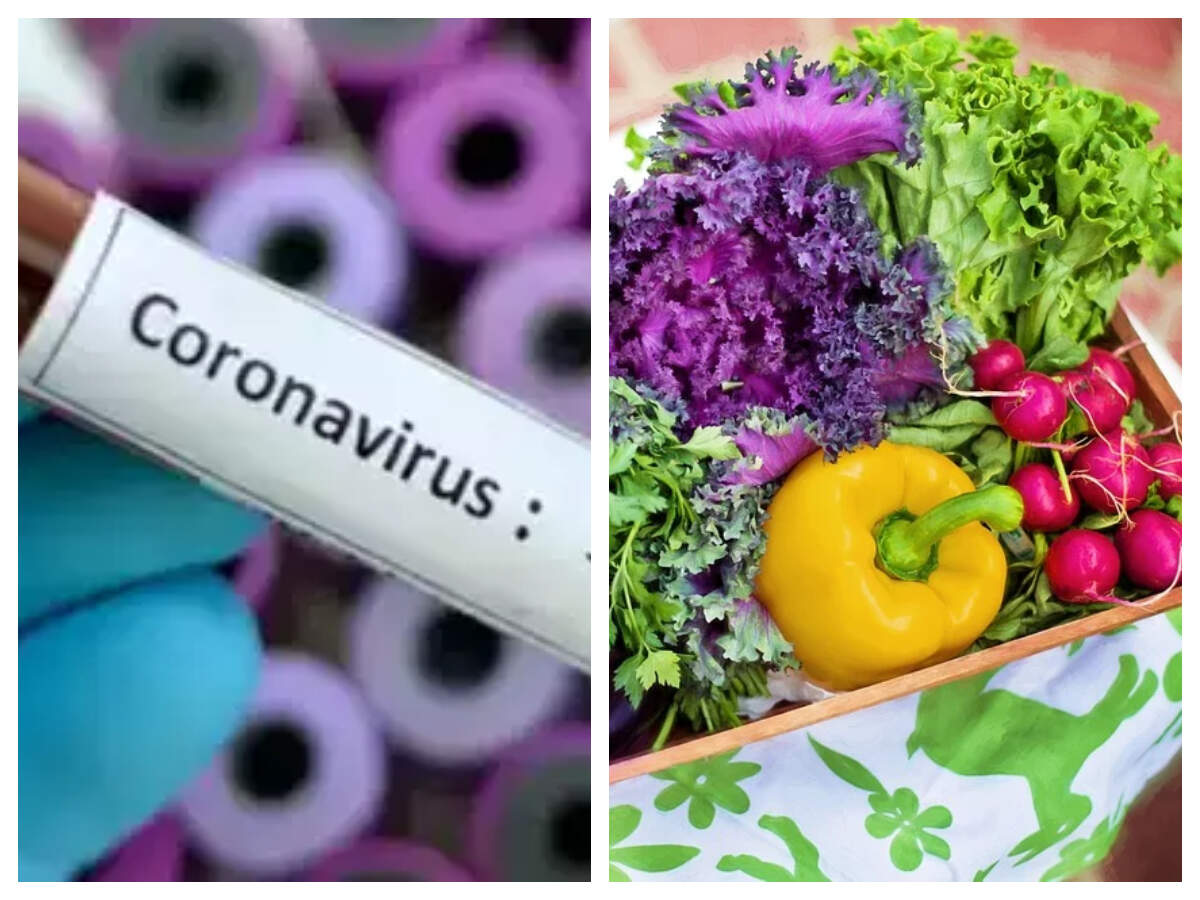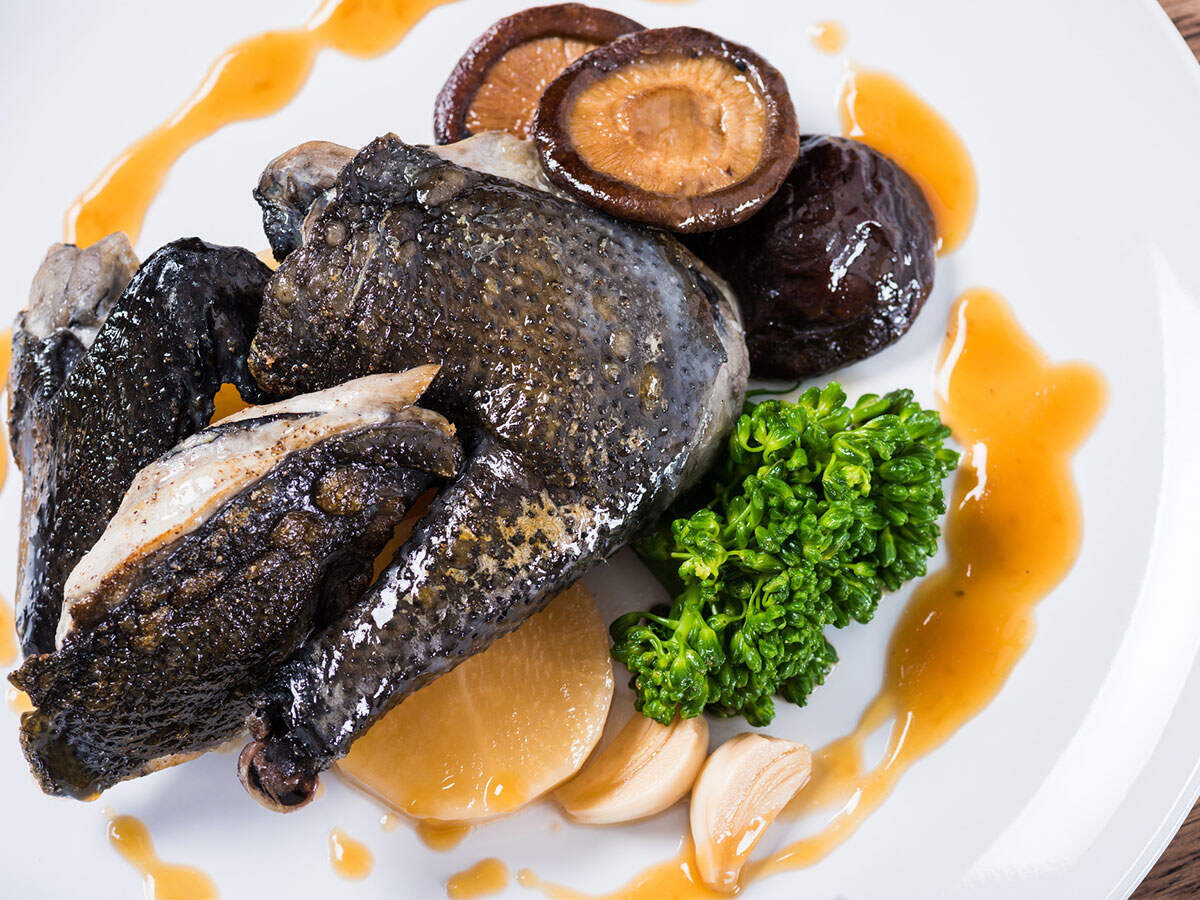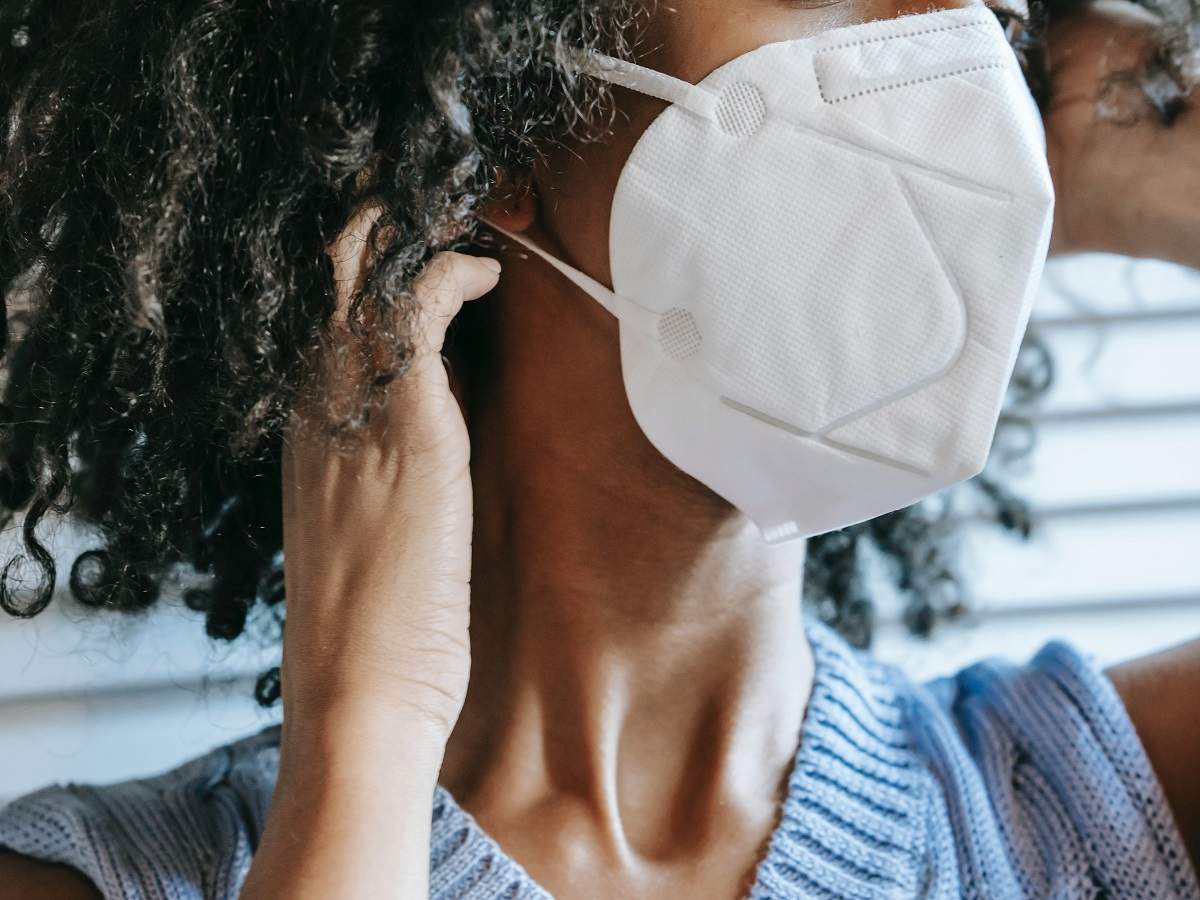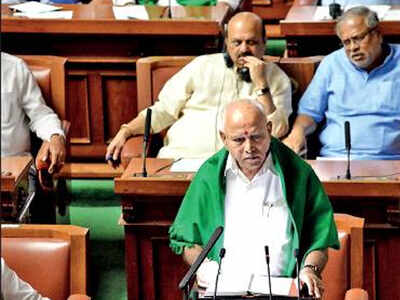
In an effort to live up to his reputation of being a farmer-friendly politician, chief minister BS Yediyurappa announced a slew of programmes for agriculture and irrigation sectors in his budget for the 2020-21 fiscal on Thursday.
He allocated a total Rs 32,260 crore for the two sectors, but a fund crunch seemed apparent as the budget showed a clear shift from big-ticket announcements — often associated with irrigation projects — to a focus on micro irrigation works.
Yediyurappa announced Rs 5,000 crore for several lift irrigation projects across the state, besides providing Rs 627 crore for drip-and-sprinkler irrigation systems. But the budget, surprisingly, had no mention of the third stage of Upper Krishna Project (UKP), although Yediyurappa — and his deputy Govind Karjol — on many occasions said Rs 20,000 will be kept aside in the budget for the project.
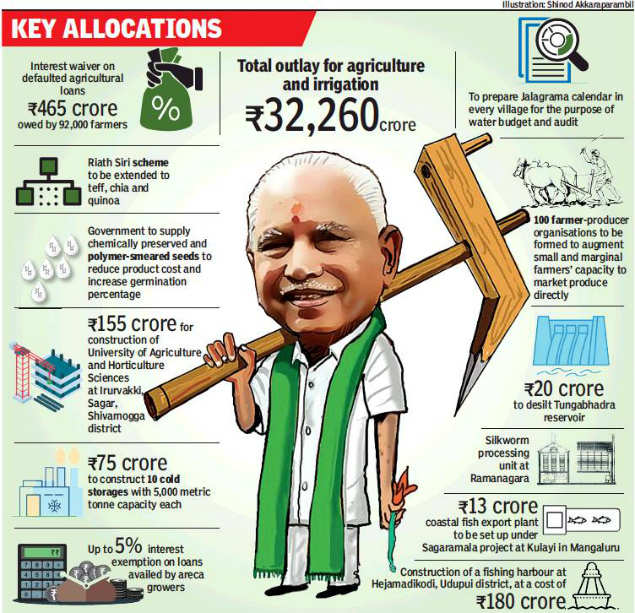
As expected, the CM announced Rs 500 crore for the Kalasa-Banduri project on the Mahadayi river and Rs 1,500 crore for the Yettinahole project. “We are committed to the speedy implementation of the Kalasa-Banduri project,” Yediyurappa said. The Centre had recently notified the final award of the Mahadayi River Water Tribunal, clearing all decks for Karnataka to launch the project.
The CM also said the government will commission the first phase of Yettinahole project in the monsoon season on a trial basis. The project seeks to supply drinking water to Tumakuru, Bengaluru Rural, Kolar and Chikkaballapura districts.
Congress’ MB Patil, a former water resources minister, was peeved. “The CM has let down people of Krishna basin,” he said. “Yediyurappa and his deputy Karjol, on many occasions, had said Rs 20,000 crore would be set aside exclusively for the third stage of UKP, but they’ve ignored it completely.”
Even in agriculture, except for an allocation of Rs 4,000 additional assistance to farmers under PM Kissan Samman Scheme, Yediyurappa’s focus on small schemes was hard to miss.
Yediyurappa has proposed some out-of-the-box ideas for farmers and fishermen such as providing them with credit cards (Rs 10,000 fund assistance each), two-wheelers to 1,000 fisherwomen to help hawk fish and introducing mobile agricultural health clinics for soil and water testing.
“We will issue Kissan credit cards to prevent farmers and fishermen from falling into an informal debt trap,” Yediyurappa said.
He allocated a total Rs 32,260 crore for the two sectors, but a fund crunch seemed apparent as the budget showed a clear shift from big-ticket announcements — often associated with irrigation projects — to a focus on micro irrigation works.
Yediyurappa announced Rs 5,000 crore for several lift irrigation projects across the state, besides providing Rs 627 crore for drip-and-sprinkler irrigation systems. But the budget, surprisingly, had no mention of the third stage of Upper Krishna Project (UKP), although Yediyurappa — and his deputy Govind Karjol — on many occasions said Rs 20,000 will be kept aside in the budget for the project.

As expected, the CM announced Rs 500 crore for the Kalasa-Banduri project on the Mahadayi river and Rs 1,500 crore for the Yettinahole project. “We are committed to the speedy implementation of the Kalasa-Banduri project,” Yediyurappa said. The Centre had recently notified the final award of the Mahadayi River Water Tribunal, clearing all decks for Karnataka to launch the project.
The CM also said the government will commission the first phase of Yettinahole project in the monsoon season on a trial basis. The project seeks to supply drinking water to Tumakuru, Bengaluru Rural, Kolar and Chikkaballapura districts.
Congress’ MB Patil, a former water resources minister, was peeved. “The CM has let down people of Krishna basin,” he said. “Yediyurappa and his deputy Karjol, on many occasions, had said Rs 20,000 crore would be set aside exclusively for the third stage of UKP, but they’ve ignored it completely.”
Even in agriculture, except for an allocation of Rs 4,000 additional assistance to farmers under PM Kissan Samman Scheme, Yediyurappa’s focus on small schemes was hard to miss.
Yediyurappa has proposed some out-of-the-box ideas for farmers and fishermen such as providing them with credit cards (Rs 10,000 fund assistance each), two-wheelers to 1,000 fisherwomen to help hawk fish and introducing mobile agricultural health clinics for soil and water testing.
“We will issue Kissan credit cards to prevent farmers and fishermen from falling into an informal debt trap,” Yediyurappa said.
Get the app





